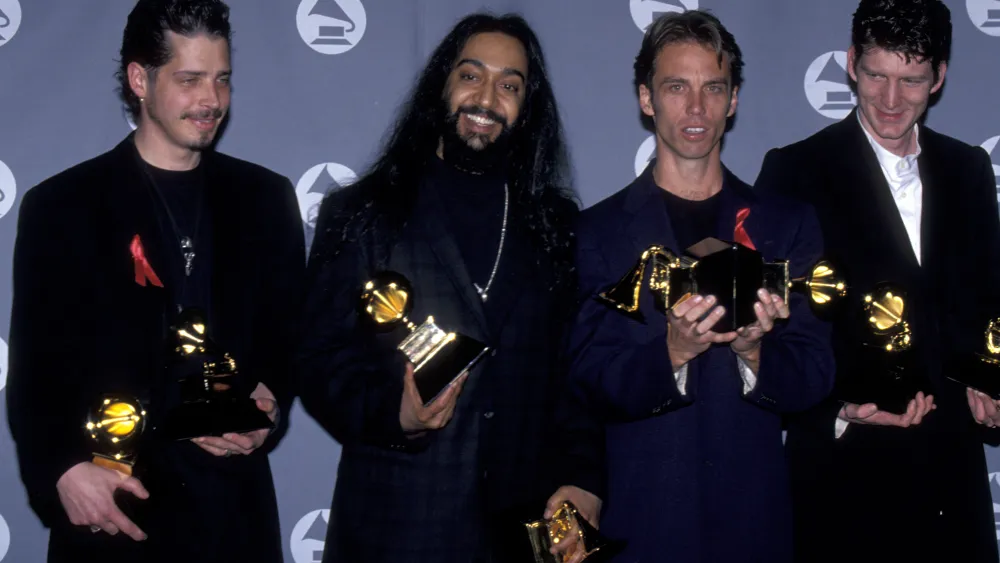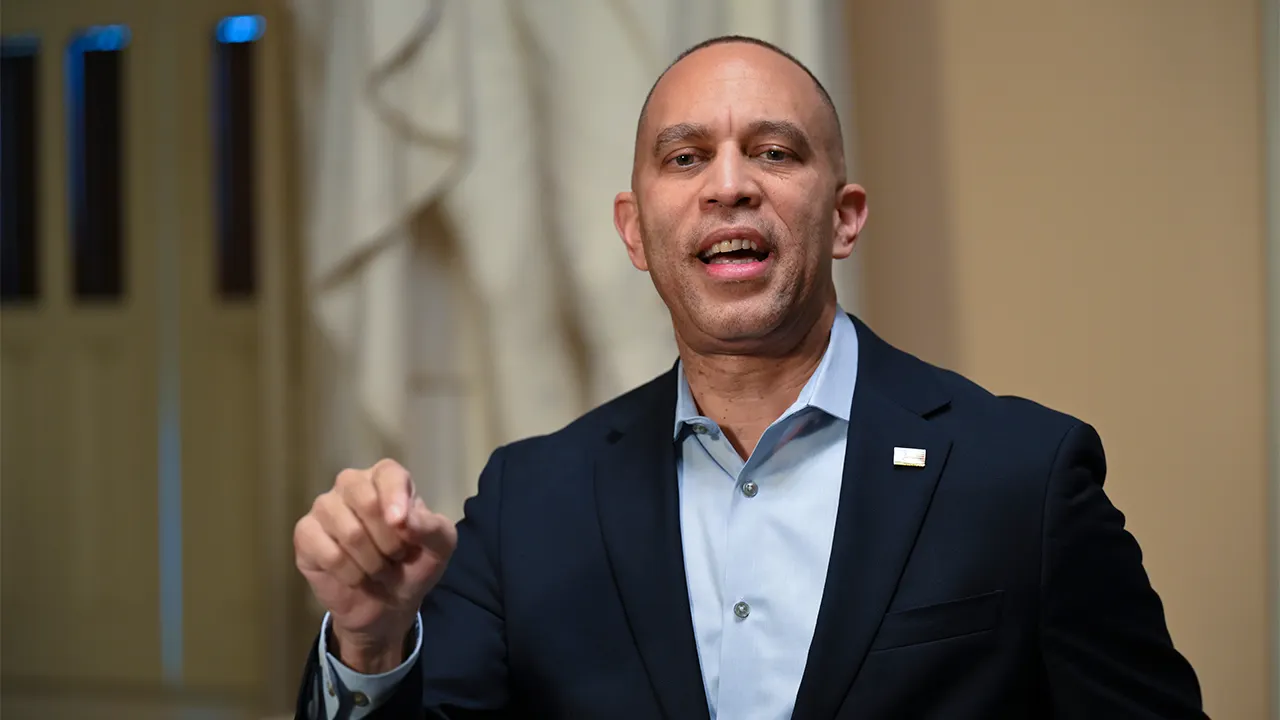Copyright Variety

Hard as it may be to imagine in these genre-blurring times, four decades ago, music fans were as siloed and separated as the genre sections of a record store. Back then, a rock fan wandering into the country or “soul” section (and vice-versa) was often like wandering into a neighborhood where people would look at you funny. Even within rock, the subcultures were divided — and none more so than the punk and heavy metal crowds. Of course, it was absurd, because the genres were so similar — loud guitars and aggression — and because most of the musicians in both crowds initially started playing music because of bands like Kiss and Led Zeppelin and Aerosmith. But for the most part, they hated each other like rival gangs: A punk musician joining a metal band would be mocked mercilessly by his former friends. It was actually a big deal when Megadeth frontman Dave Mustaine had a Sex Pistols sticker on his guitar in the mid-‘80s, and when Metallica covered a Misfits song. But those boundaries broke down quickly in the following years, and Soundgarden had more than a little to do with it: Their 1987 debut EP, “Screaming Life,” was the most vivid and convincing fusion of punk and hard rock that had come to date. Other bands had done it before (including pioneering Seattle rock band Green River, which split the difference by evolving into Pearl Jam and Mudhoney) and it would be the basis of the sound of the then-nascent grunge genre, but Soundgarden were the first band where it truly felt like both genres were proudly equal in their collective DNA. Along with frontman Chris Cornell, guitarist Kim Thayil is the only bandmember who was with Soundgarden for the duration. He, Cornell — who initially was the drummer and singer — and bassist Hiro Yamamoto formed the band in 1984. Eventually Cornell decided to become frontman, and after a brief stint with Scott Sundquist on drums — who played on the band’s recorded debut on the legendary “Deep Six” compilation — Matt Cameron joined in 1986 and remained from then on. Soundgarden’s initial run lasted for over a decade, until they decided to split in 1997, after releasing five albums, two EPs and a bounty of stray tracks. All four members worked on solo projects or in different bands, but they reunited in 2010 (with Cameron splitting his time between Soundgarden and Pearl Jam) and released another album, “King Animal,” in 2011 and toured regularly, until Cornell’s death in 2017. Five members of Soundgarden — Thayil, Cameron, bassists Yamamoto and Shepherd and, posthumously, Cornell — will be inducted into the Rock and Roll Hall of Fame on Saturday. Variety caught up with Thayil last weekend during a break from rehearsals for the show. Cameron has posted photographs of the bandmembers rehearsing with members of Pearl Jam (who recorded the joint album “Temple of the Dog” with Cornell and Cameron in 1990) and Taylor Momsen of the Pretty Reckless, who opened for Soundgarden on their final tour, but everything else remains a surprise. (See also Variety‘s exclusive interview with original Soundgarden manager Susan Silver here.) I suppose we should start with the obvious question: How does it feel to be inducted into the Rock and Roll Hall of Fame? In the ‘80s or even in the ‘90s, the Rock and Roll Hall of Fame was not something that I saw as a legitimate consequence of my work or career. I didn’t see that as an objective, it wasn’t on my radar, and the subculture that we came from did not see it as a standard of excellence or a measurable quantity of accomplishment. So how do you judge a career? We wanted to be the kind of band that would inspire people to pick up instruments and start writing and make their own original music, and hopefully to be innovative. We certainly didn’t want people to imitate us, and we had no interest in imitating anybody else. All of us — I’m thinking mostly of Chris and Hiro and I, who founded the band — are outsiders, and we all think a little bit differently from each other and certainly from the mainstream. So our goal was to be honest as individuals and find that point in which the three of us shared a vision, and to develop it. And in doing so, you’re going to come up with something that’s different and unique, but also familiar because you’re young and you have certain reference points. That’s where Soundgarden’s identity was born. One of the many objectives was to be the kind of band that we looked at, like the Ramones or Pink Floyd or the MC5 or Black Sabbath, and say, hey, thank you guys, and we’re going to pass it forward. I think we did that, and that’s the standard. But it does make you ask, how do you quantify “fame” for the Hall of Fame? Is it sales, how often you were on MTV, how many top 40 hits you had? That wasn’t on our radar. But when you start seeing artists [inducted] for how they impacted younger musicians and up-and-coming musicians, then you start thinking, well, maybe they are getting something right — like when the Stooges got inducted. When do you think that started to happen? I think my opinion of the Rock Roll Hall of Fame changed because of Chris’ experience, when he inducted Heart [in 2013]. Chris and Ben Shepherd attended that year, and they both came back with a positive experience. Chris communicated to me, “You know how we’ve always felt about the Hall of Fame and how it didn’t really matter to us? It matters to the fans.” He saw how Heart’s fans responded, how important and validating it was to them that an artist they care about was recognized as being important. Chris said that insight is what made him realize that this is a valuable institution. And he convinced me — we might have had a few different conversations about it, but I trusted Chris’ judgment and insight in that regard. I mean, we’re all close friends and I trusted his understanding and the way he shared it with me. I also feel like both the Rock and Roll Hall of Fame and the Grammys have gotten a lot better in the last 20 years or so. It seemed very stodgy, very rock and roll establishment, with Mick Jagger and [Rolling Stone founder] Jann Wenner and that sort of Boomer club. (Laughing) You said the first two names that would have popped into my head. But it’s gotten a lot more open-minded, and I think the Grammys have as well. I think that’s spot on. Iit was very Rolling Stone, post-hippie-culture oriented, and the fucking Boomer soundtrack for every movie about the Vietnam War — that seemed to be the orientation. But they did change things, it went from being a white guys’ club that patted themselves on the back to actually recognizing what musicians listened to and how they were impacted. It seems like something that was key was when they brought in people like Tom Morello and Questlove, and almost immediately, you saw Kiss and Chic getting inducted — artists who were hugely influential on their generation, but the previous generation couldn’t see that. And that’s the point. Kiss were impactful — they didn’t just sell a lot of records, they convinced millions of kids to pick up a guitar and start bands. I mean, grunge, punk, thrash, so many aspects of American popular culture could trace back to little kids being like, “Wow, this is cool. I want a guitar!” At the time of “Screaming Life,” we’d never heard a band that sounded like both Black Sabbath and the Butthole Surfers. Green River did to a degree, but at the time, punk and metal were worlds apart. I mean, I probably had the first two Sabbath albums and also the first two Butthole Surfers albums in my record collection, and they were probably both in Chris’ collection and in [Green River/Mudhoney singer] Mark Arm’s too, I guarantee it. Was that intentional, or did it just come out? It’s like, “I love listening to both of these things, they’re both important culturally and they’re both important to my identity. I am going to be honest, and I’m going to play the music that’s in my head, and so are Hiro and Chris. And that intersection is who we are.” We shared enough influences that we had a good base identity to begin with. I was 16, learning guitar, and then here come the Sex Pistols, here come the Ramones. I get these records, like, oh my God, not only is this my ability and aptitude as a guitarist, but it’s cool distorted chords, cool grooves, it’s all the good stuff. So then you get older and start realizing, there’s innovation here, and you’re growing up as the genre grows up, and then you’re in college and you put your childhood toys away, which includes your Kiss records. But then at some point, you get together with friends and you realize, we were all weaned on this stuff, and if it’s important to who we are, then we’re being dishonest by not communicating that. I think we were of that cusp generation — us, the Green River guys, the Melvins, and then ultimately the Nirvana and Alice in Chains guys: “Here’s this new shit happening that we love, but we’re also raised on this other stuff. Do we deny that because we’re older and smarter and grown up? Or is there room for it in the way we make music?” I think there was a very honest allowance for that in our little pocket subculture in Seattle, an allowance for those kind of guilty pleasures, an allowance for the parody of the homage. I specifically said this to Chris and Hiro repeatedly: We don’t need to bend for the audience or bend for the market, we will bend the market for us. And I think we achieved that for many years. Of course, along the way, there are compromises where you have to accommodate to a market that is in some ways inflexible and institutionalized, and obviously, there are things that help those doors open and helped us bend the market, like the success of Nirvana and Pearl Jam. But certainly working with a manager, record labels and artists who were all in the same positions helped us redefine things. So did it feel strange to have been so uncompromising in your music and then find yourself onstage at Madison Square Garden and stadiums all over Europe, opening for Guns N’ Roses? We just thought, “We can headline shows ourselves and maybe never get to play in Kansas or Oklahoma or Nebraska, or we can play with Guns N’ Roses and hit all these markets, and we’re not being anyone we’re not, and can pick up some people who maybe would never have heard of us.” That worked well, and it worked also because Duff [McKagan, Guns N’ Roses’ bassist] came from Seattle. He played with a band called Ten Minute Warning, which kind of did something similar to what Green River and Soundgarden and the Melvins were doing: They were born out of a few punk bands and also embraced these metal elements. But then Duff and [drummer] Greg Gilmore, later of Mother Love Bone and a friend of ours, took off for L.A. and eventually Duff joined Guns N’ Roses. Punk rock was very much part of what Guns N’ Roses were doing, as well as classic rock and arena rock. Was Duff a friend of yours before he moved to L.A.? No, but we knew who he was. Hiro and I moved from the Chicago area in ’81, we were 20 and 21 respectively, so we were going to shows and would see Duff with the Fartz or the Fastbacks. And when Guns N’ Roses came out, it was like, “Hey, it’s that dude!” — they played a venue that we played with Soundgarden, the Guerrilla Gardens Rock Theater. There were a lot of people we knew of because you’d see them at shows with 100 or 150 people or less, so you knew everyone who was into Black Flag or the Butthole Surfers. It was a very small scene in Seattle. You still haven’t really answered the first question: How does this feel to you? Does it feel validating or …? I think there’s some sense of validation in that we can share the acknowledgement with our peers and colleagues. The fact that we’re being recognized by an institution that also recognizes Pearl Jam and Nirvana and the Stooges, I think that’s a big deal. And I would hope that other bands like Sonic Youth and the Pixies and Motorhead and Iron Maiden and Alice in Chains would also be recognized. The community of peers and colleagues — that’s what makes it a positive acknowledgement. Is there anything you’d like to tease about the performance? We’ve already seen photos of you rehearsing with Pearl Jam and Taylor Momsen. There’s one thing to be sure of: I will be attempting to play guitar again. And I think we all know that the spirit of this is the love we have for each other and the love that we all shared for Chris. So what we do is in honor of our legacy, and in honor of Chris and how he loved us and his unmistakable imprint on that legacy.



